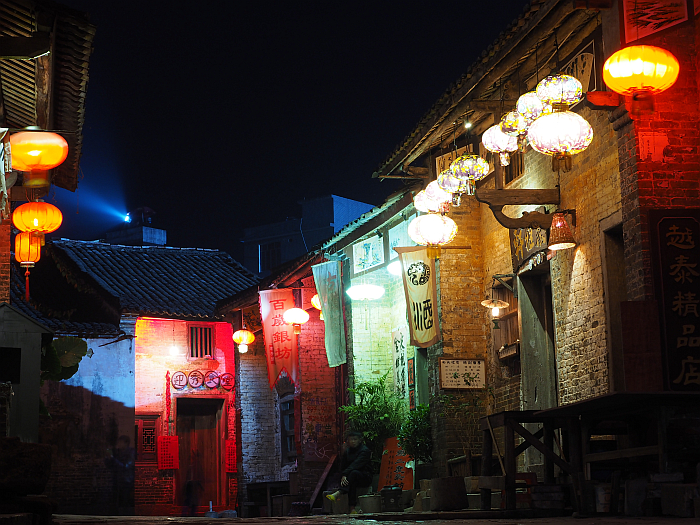
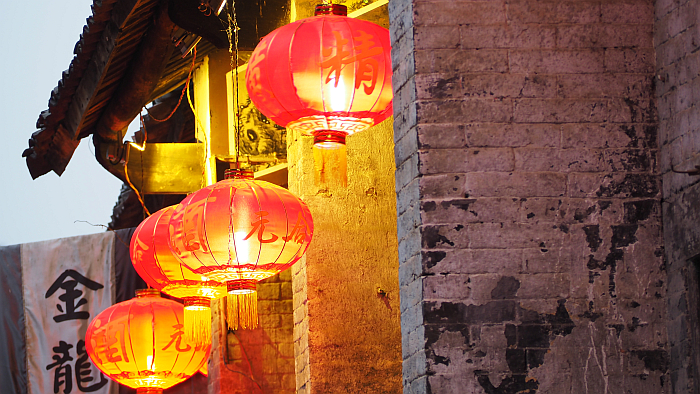
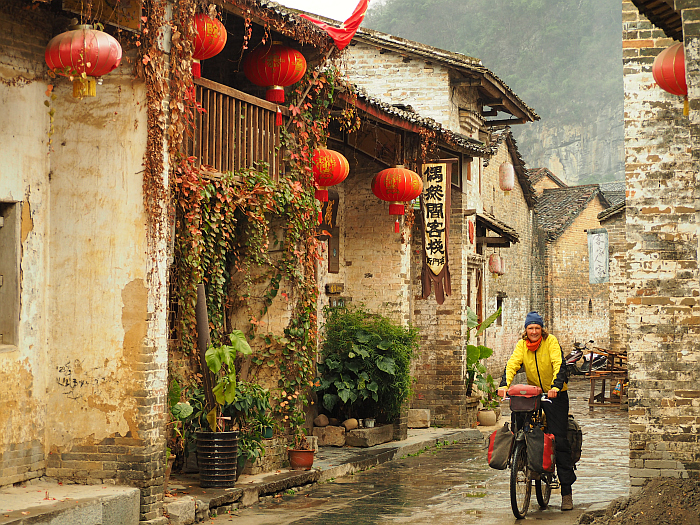
The border building at the Chinese side looked like a massive showing off structure. Luckily they
processed the paperwork quickly.
Thus, I had entered the monster sized country China for the third time since I left home.
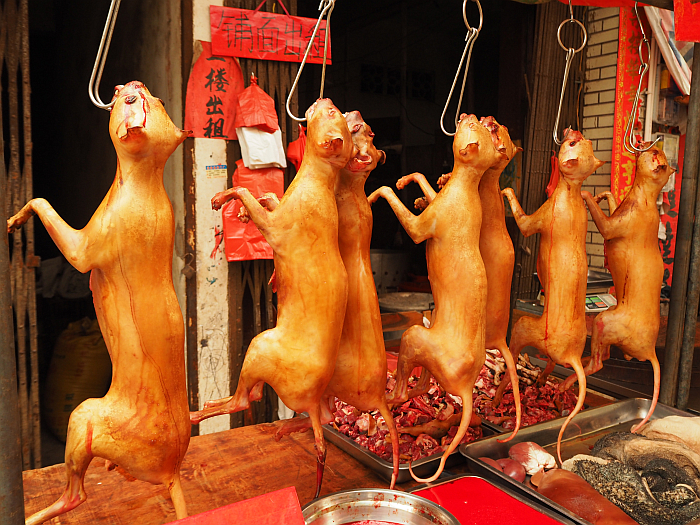
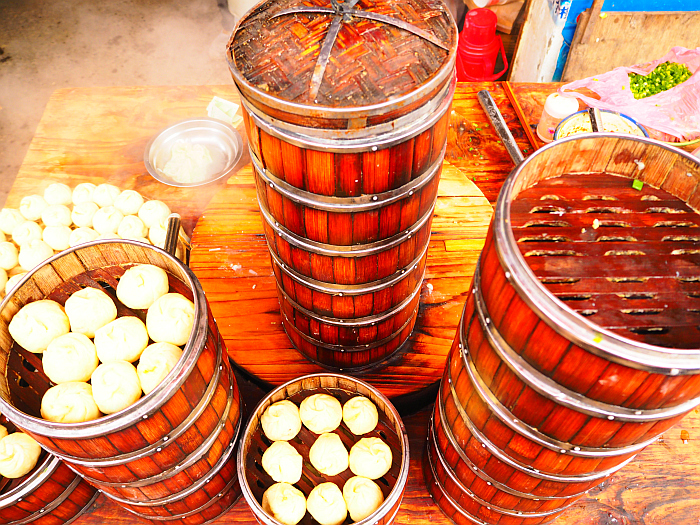
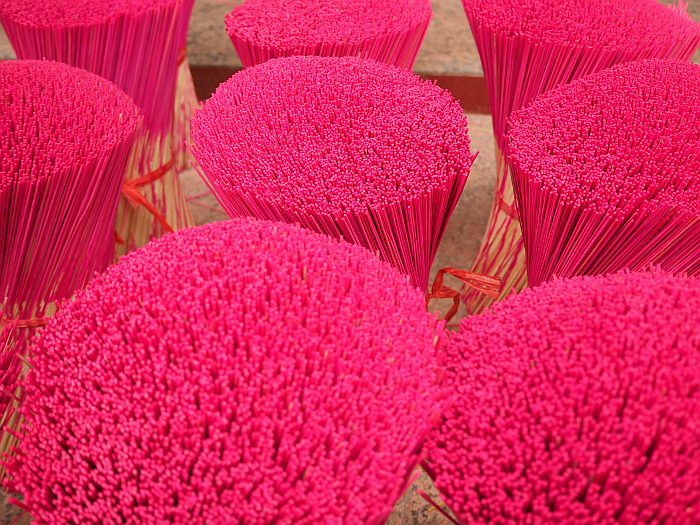
To my surprise, some of the people spoke a smattering of English and when they couldn’t, I managed to communicate with them in other ways. They were all much more willing to attempt to understand. There was rarely a “mei you” or “ting bu dong”.
Instead, they often came up with the idea to use a pen and paper to communicate, to look and listen in an attempt to help or make an order for me at a restaurant.
People were thinking together with me here.
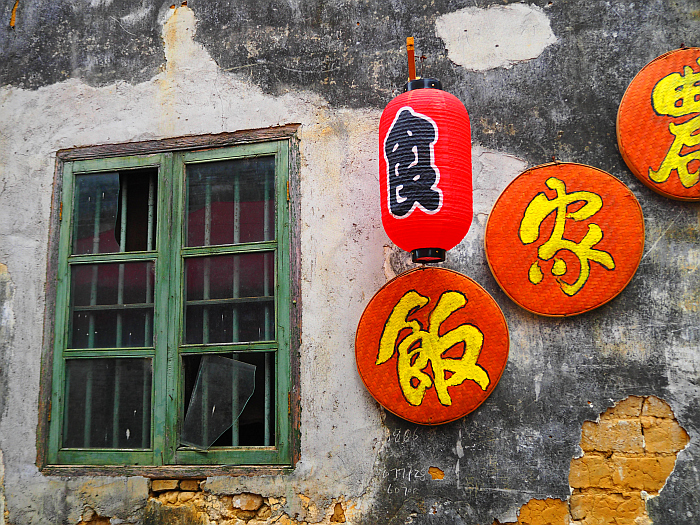
In the smaller places where I stayed, they didn’t even ask for my passport; there were no endless discussions and I could spend the night anywhere I wanted.
At first, nearly every gas station had clean toilets, all with separate cubicles.
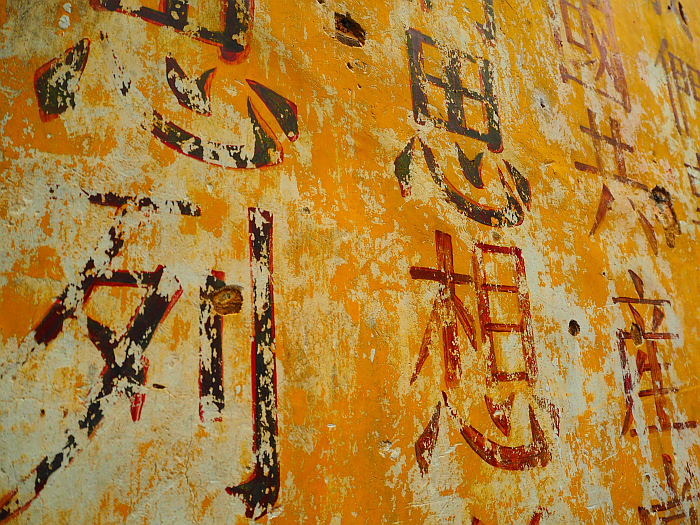
Also, asking for directions suddenly became easy. Nearly everyone knew the way and gave me the correct information.
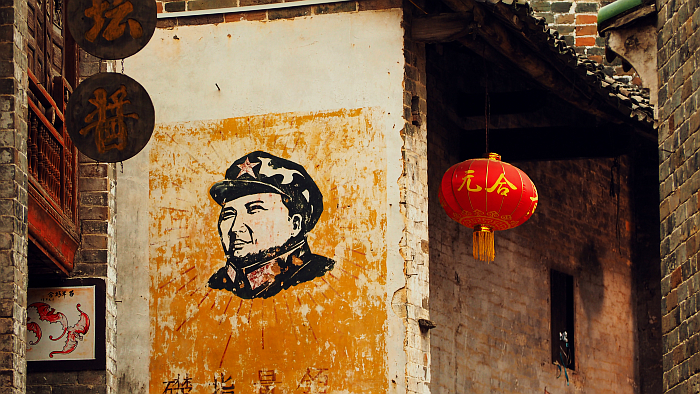
Children ran after me and laughed when they saw me. The field workers called to me
and gave me a nice smile.
A motorcyclist drove slowly past me and said in English: “Welcome to China”.
In one of the hotels, there was a world map hanging on the wall and the owner asked where I came from. I pointed to Germany and she said promptly, “De Gua”.
This was China? I couldn’t believe it.
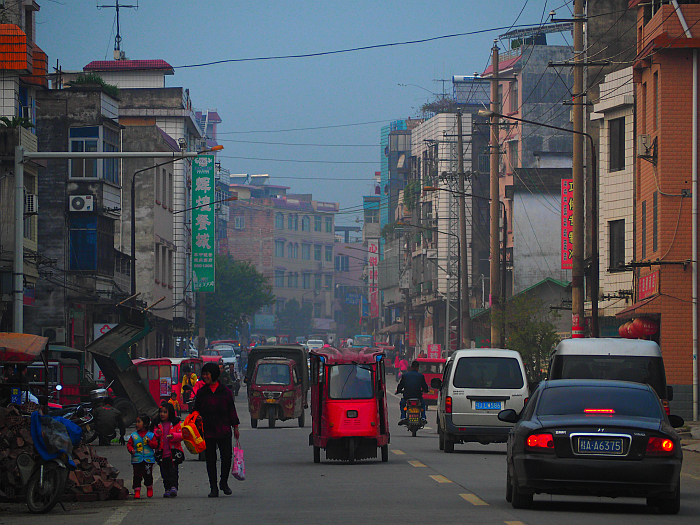
I cycled the first few days for hundreds of miles passing sugar cane plantations. The harvest was in full swing. Trucks and water buffalo coaches were brimming full with sugar cane, and in the fields, people working dominated the scene that surrounded me.
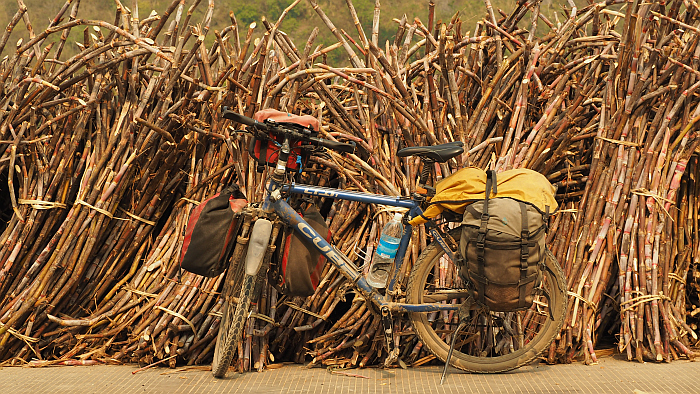
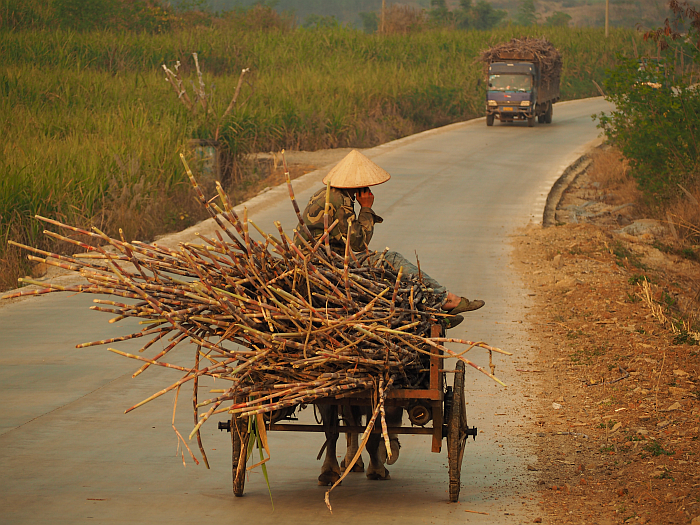
Besides that, the landscape profile was of undulating hills – no more endless mountains. I was finally able to move forward again and enjoyed not having to drive non-stop in first gear.
Luckily, I was able to repair my gearshift, so I was able to cycle properly again, I believe for the first time since the Gobi desert, which lay 6,000 km behind me.
I passed through towns that were so neglected that I couldn’t believe it – filth, chaos, abandoned or dilapidated houses. There was dust without end and even the main street consisted partially of gravel or brutal potholes.
It sometimes looked like a war had just ended there.
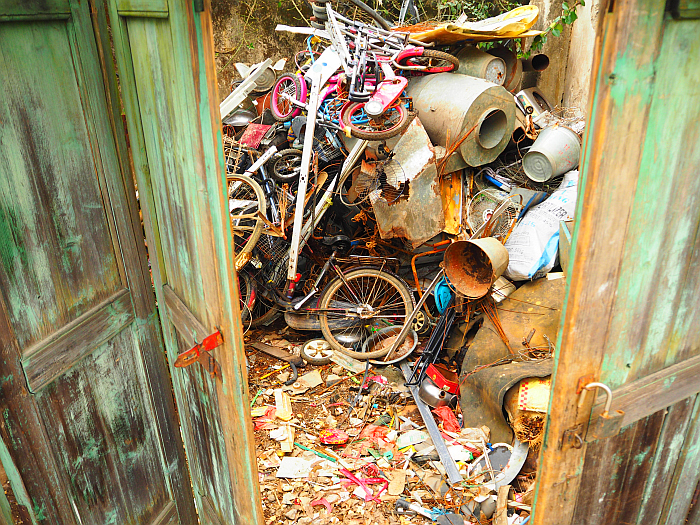
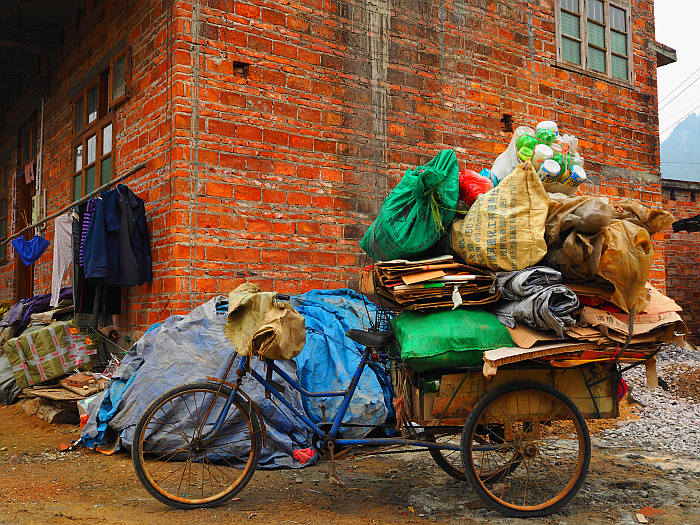
I was curious if I would ever come into an area where I could see the alleged wealth of this
country. So far I’d seen almost exclusively only third-world China.
The weather was very hazy, the sun barely came out; it was almost a mystical atmosphere. The temperature was perfect. During the day, about 20 degrees Celsius, at night it cooled down enjoyably.
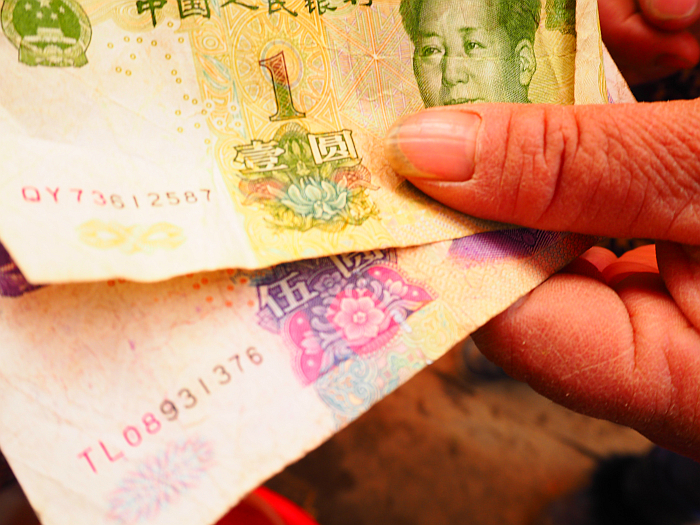
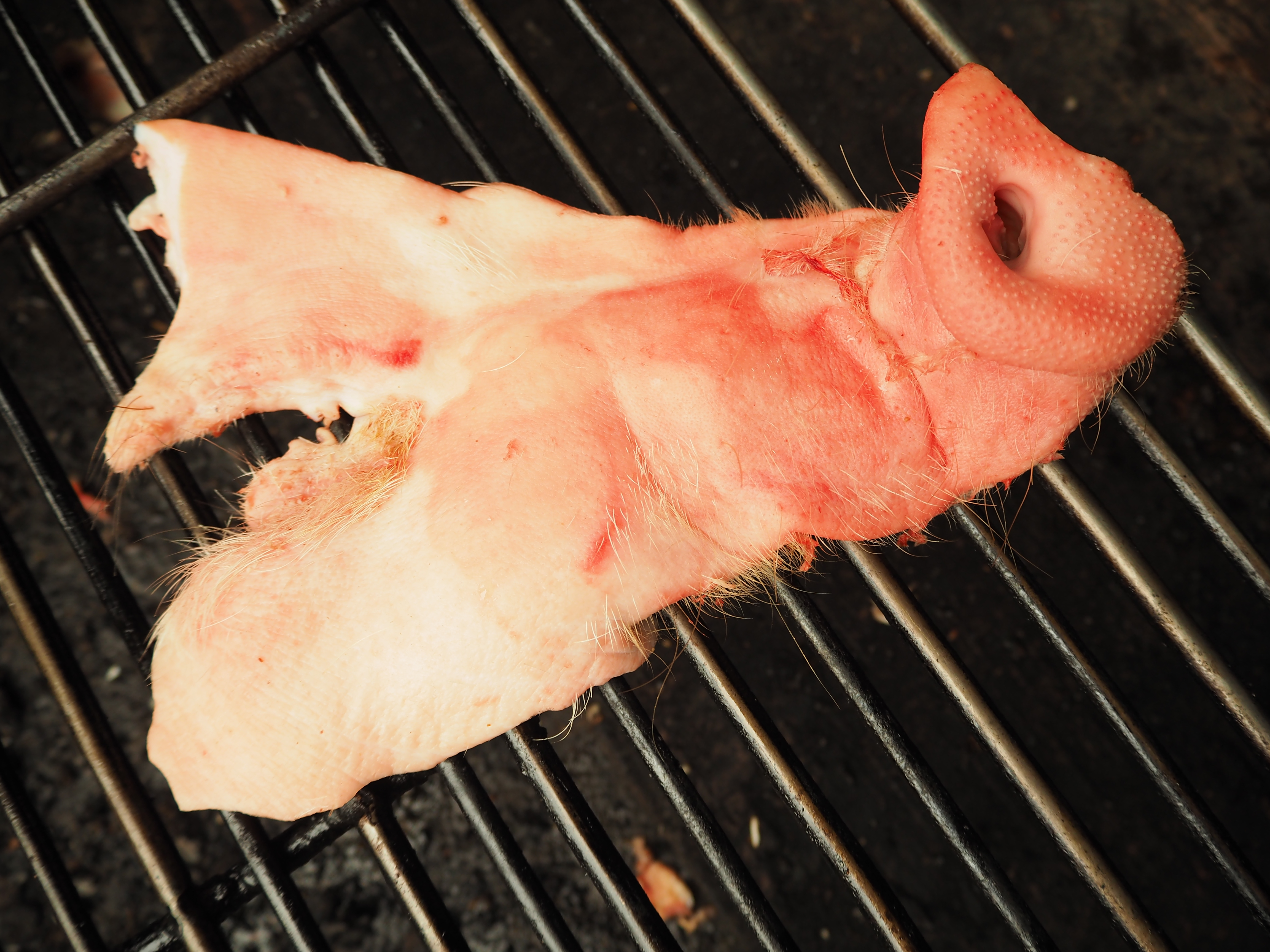
I arrived in Nanning, a city of 7 million people. The suburbs there were gray in gray, but at some point I finally approached the city center. In a pedestrian zone, the pomp surprised me.
It looked like everything had been licked and polished all over. It was a small luxury island in the middle of China’s gray facades.
I met a Scotsman, with whom I held a rather lengthy conversation. Later, a gentleman dressed in a suit and tie came up to us and showed us a translated sentence on his i-phone display:
No parking space. I immediately had to start laughing loudly. I had ridden in this country thousands of miles through mud and stench, through dilapidated neighborhoods, poverty and dust.
Children poop in the streets only a kilometer away from these artificially built luxury square meters, where mountains of garbage pile up on every corner and I can’t park my bike here?
That was the biggest joke I could imagine.
Leaving Nanning, I met a Chinese cyclist who was on his way home. Coincidentally, I was cycling in the same direction, so I had some company for 3 days.
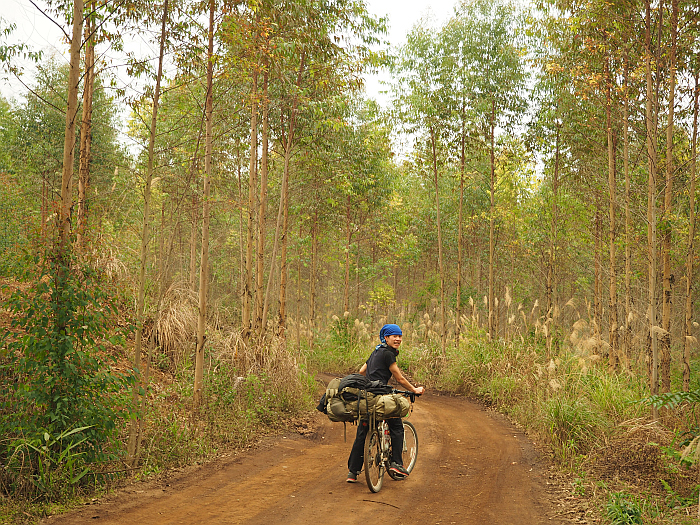
Lue was only 20, but to my surprise he was in no way fitter than I was, even though he had much less gear.
Unfortunately, his English wasn’t good enough to carry on a conversation or to ask complex questions, but we understood a few things we said to each other, so for 3 days I had a guide and found it very exciting to be on the road with him.
For the first 2 days after leaving Nanning, the traffic was murderous. I had never experienced so much dust and noise before on my trip. Trucks loaded with construction debris thundered past us constantly. Their loads of sand trickled constantly onto the street and whirled continuously around us.
Actually, it was like an unending sand storm.
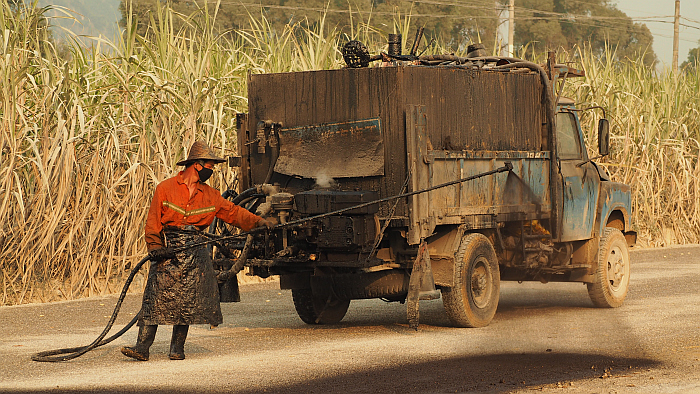
Lue said the traffic had increased a lot just in the last 2-3 years.
In the evening my eyes were burning and I was completely exhausted by the incredible noise and the many people everywhere. But I must say, the driving habits of the Chinese in the province of Guangxi were much more pleasant than in the other provinces where I had been before.
We passed through several towns that, for Chinese conditions, were small, but to me they looked like capital cities – the incredibly wide streets, the crowds and the many shops.
Music sounded in each store from huge speakers and in the streets there was non-stop honking.
I found it amusing and it was really fun to “swim” with my bike through the cities along with the traffic. When I came to a traffic light at the same time with hundreds of moped riders, pedaling together with them somehow had its appeal.
Luckily, trucks were not allowed to drive through the cities, so it was more pleasant to ride here than on the roads in the country.
While we were eating something in one of the small restaurants in the many cities, I had the need to go to the toilet. Of course, they were nonexistent, because in China, toilets are just nowhere. Often, I saw mothers letting their kids pee on the streets in the gutter. No wonder! Kids can’t hold out for long.
We were sent a few streets down the road to a hospital. The only thing that turned around my mind was that not all of the many people here could possibly go to the same toilet. Where do they all go to the bathroom? It’s a mystery to me.
The hospital looked like it was some place in Africa. The toilet was surrounded with garbage right up to its pedestal and bags of medical waste were stacked up in front of it.
The contrast in this country couldn’t be more extreme. Sometimes, a luxury car would pass by; on the same street you could see beggars wearing totally ragged clothes carrying their belongings with them.
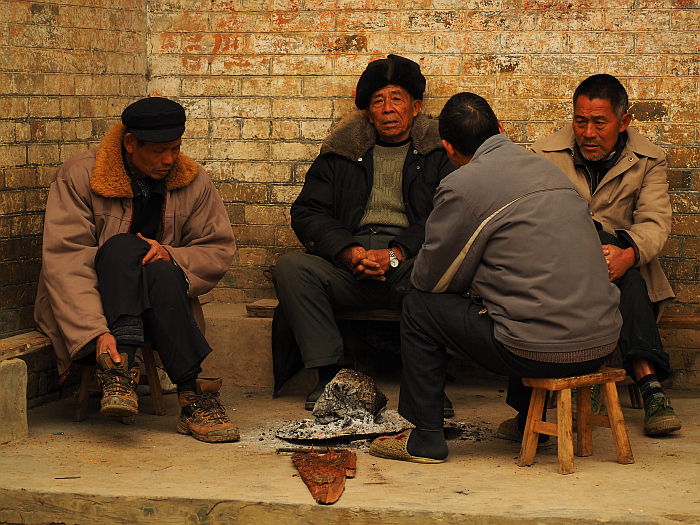
We took a break on a country road and I sat down next to an old woman on a bench. She looked me up and down and I noticed how she began to inch away from me. She was obviously afraid of me; it was written in her face.
I asked Lue for a translation, but the lady didn’t speak Mandarin, but rather some local language. But some other people there helped Lue to translate.
The lady had never seen a foreigner before and she was totally surprised how tall I am.
What interested me the most was how she was able to deal with all the loud noise. We were sitting less than 5 meters from the road and it was sometimes so loud that we had to yell at each other. I wanted to know how she dealt with all the modern progress.
To my surprise, she said that she is happy that she can now visit the neighboring towns and that she is more mobile. The noise doesn’t bother her at all.
People sit all day long on the side of the road. They sell everything imaginable at their market booths and are continuously exposed to tons of exhaust fumes. The houses are all built so close to the road that the people in them must certainly feel like the trucks are driving right through the middle of their kitchens.
Construction is everywhere. Huge skyscrapers suddenly appear in nearly all the small towns.
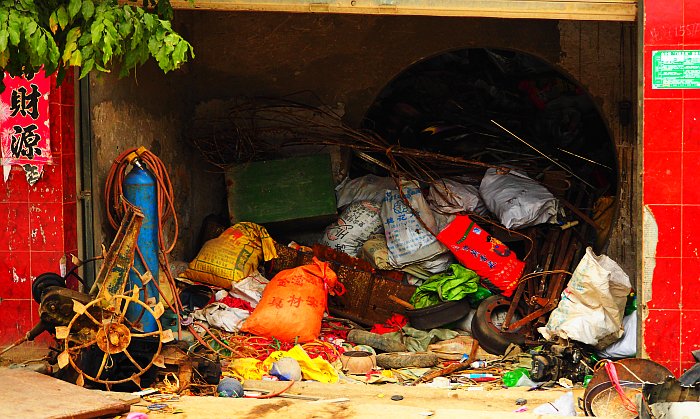
Plastic, everywhere plastic. China is smothered in packaging. Goods are never wrapped only once in plastic; no, it has to be at least twice; three times is more likely. At the checkout, everything is wrapped in plastic again, that is, unless you refuse the plastic bags like I do.
In small restaurants, the chefs are apparently too lazy to wash the dishes, because the plates are first wrapped in plastic before the food is served.
Soup, which the people buy in the little food stalls, is carried home in plastic bags. Tea is served in plastic cups.
You can find chicken legs, pickled vegetables and even boiled eggs sealed in plastic on the shelves of supermarkets. And all of these packages then eventually fly around somewhere in the region. Where China disposes of its waste remains a mystery to me.
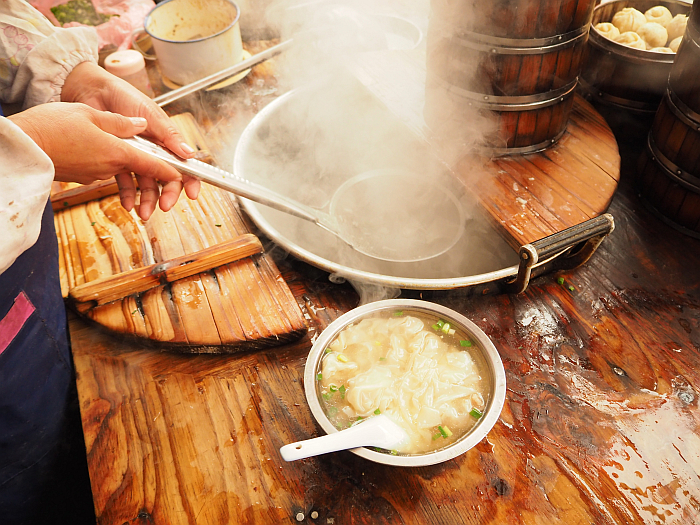
Truck drivers repair their engines on the side of the road and simply let the oil seep into the ground. But, still, I found it exciting again. On every corner, there is something going on and
it’s never boring.
In a narrow alley, I watched a very old woman dressed in rags pulling a fully loaded cart behind her. She was obviously having a difficult time with it. She was followed by a young man at the wheel of a brand new mid-size car. He honked and honked and attempted to drive the woman off the narrow road. I only shook my head and wondered how disgusting people can be with each other.
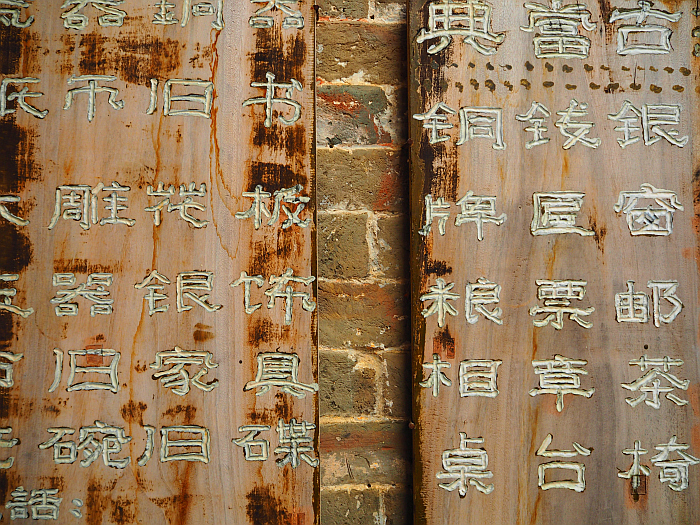
Unfortunately, after 3 days we arrived at Lue’s house. I would have loved to continue riding with him even longer. Although we had cycled 3 days together, he didn’t invite me to his home.
The Chinese are just different in that matter.
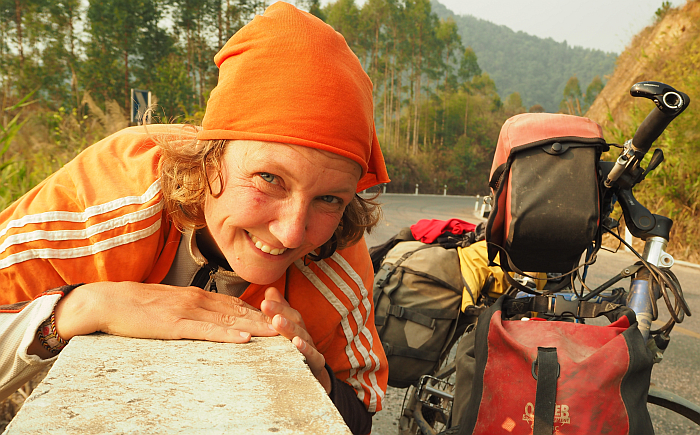
Exactly that is what I find so sad about the country and it doesn’t make it easier for me as a solo cyclist, because I’m always alone. In the long run, it’s really not very kind.
In the Muslim countries, it was great to sit together with the large families and to experience how the people there lived. I longed very much for some kind of connection with the people I met.
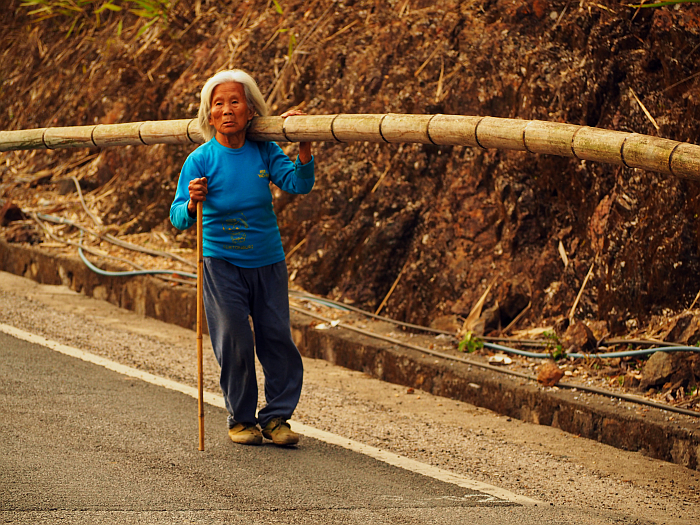
The traffic became much calmer. The streets were almost deserted and I was surrounded by forest and a few hills.
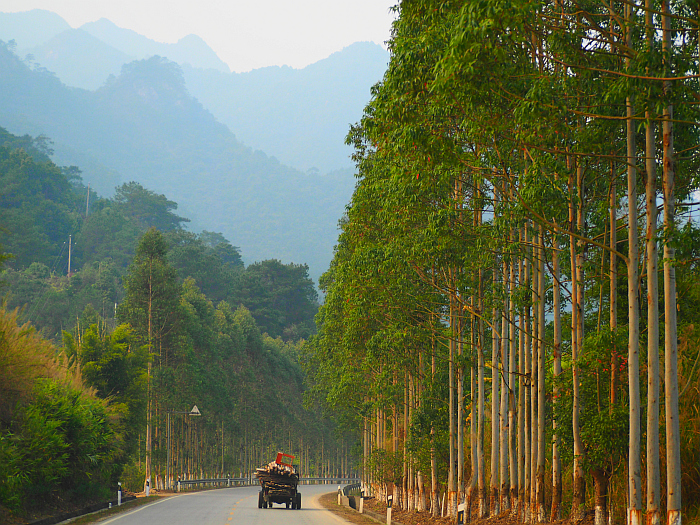
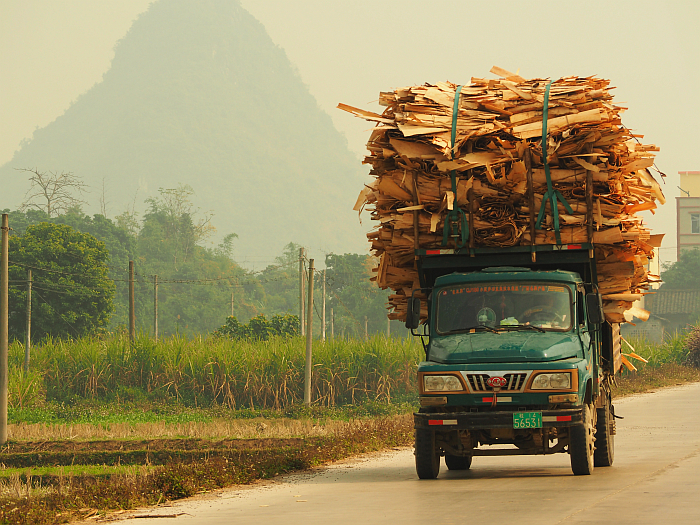
Unfortunately, the weather was getting worse, and when I arrived in Huangyao, a small town
that is really still very pristine, the country was hit by a cold front. Suddenly, it was freezing
cold and raining.
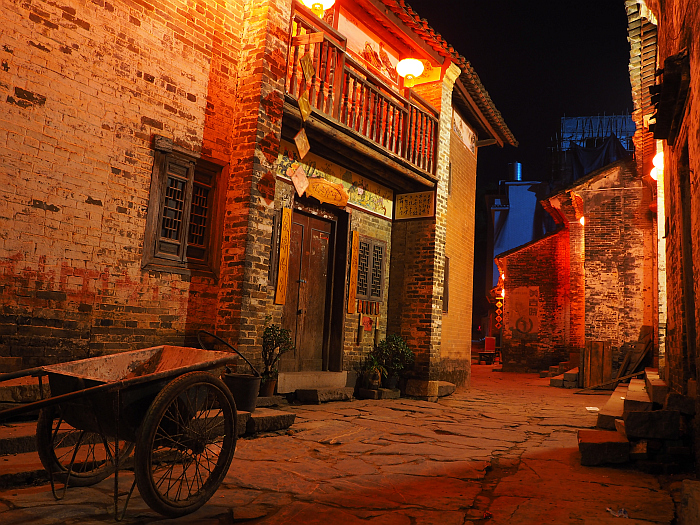
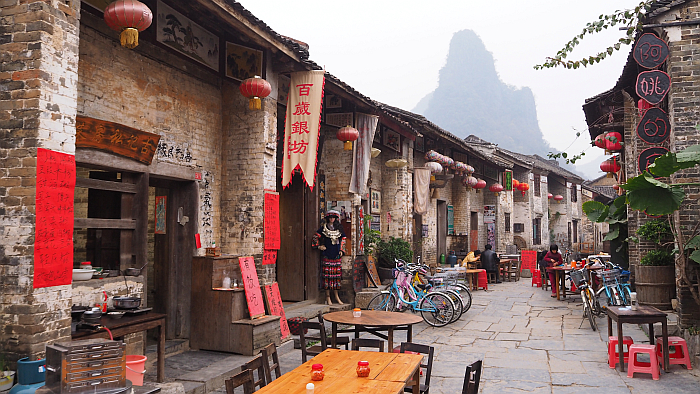
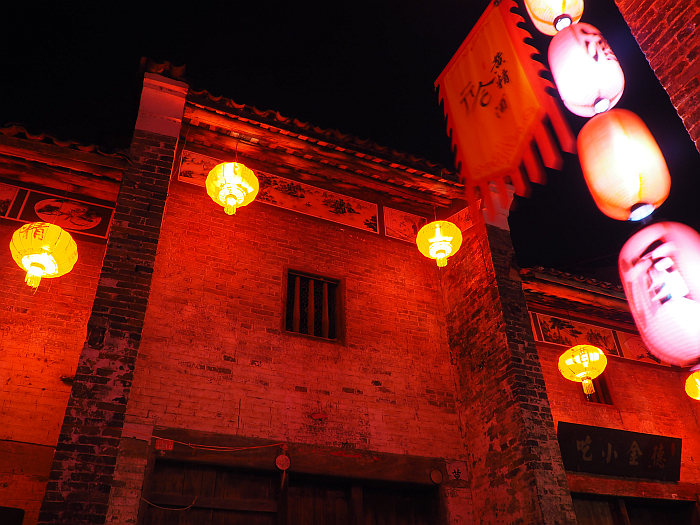
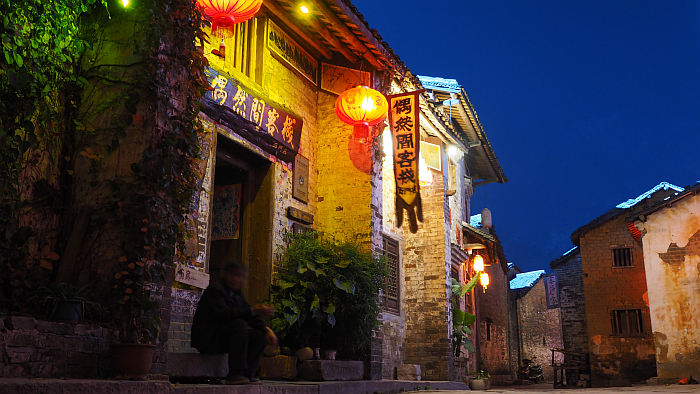
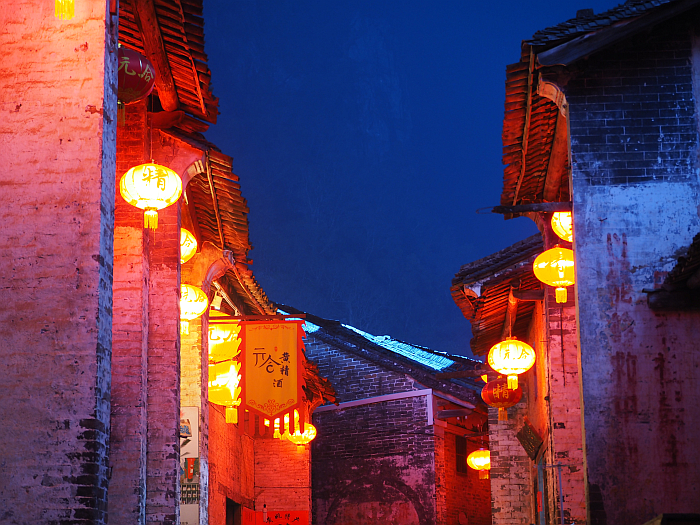
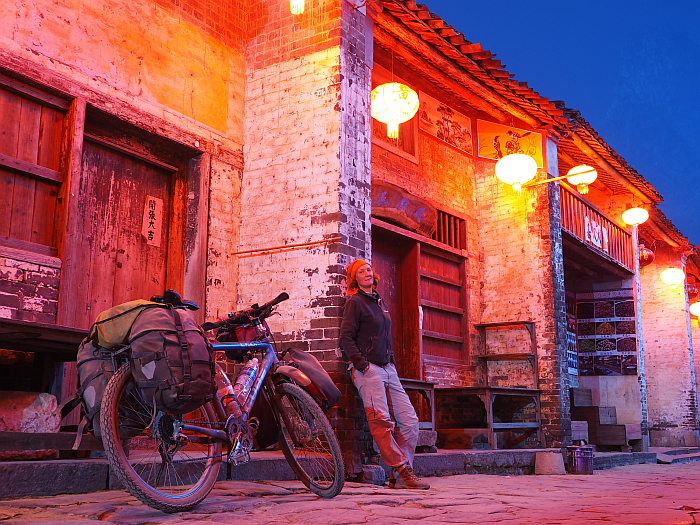
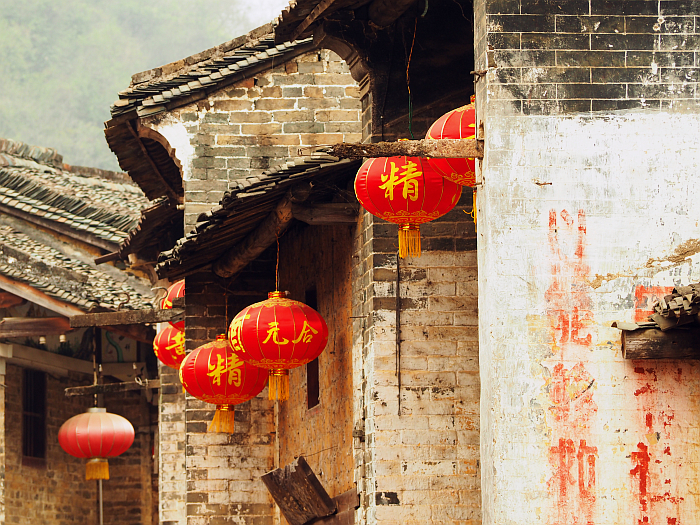
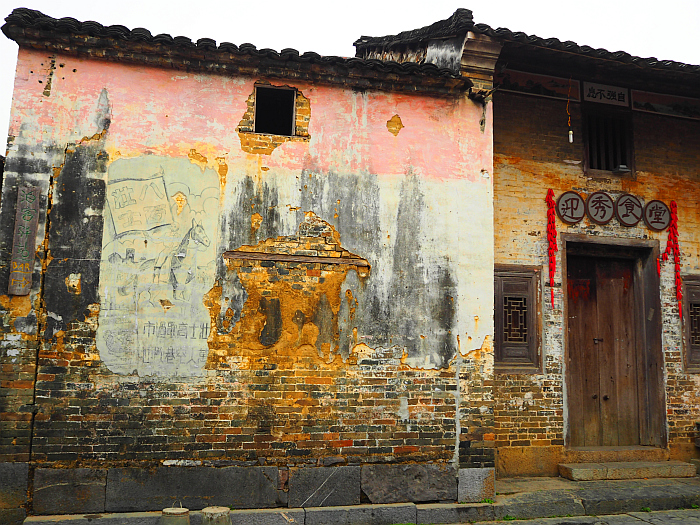
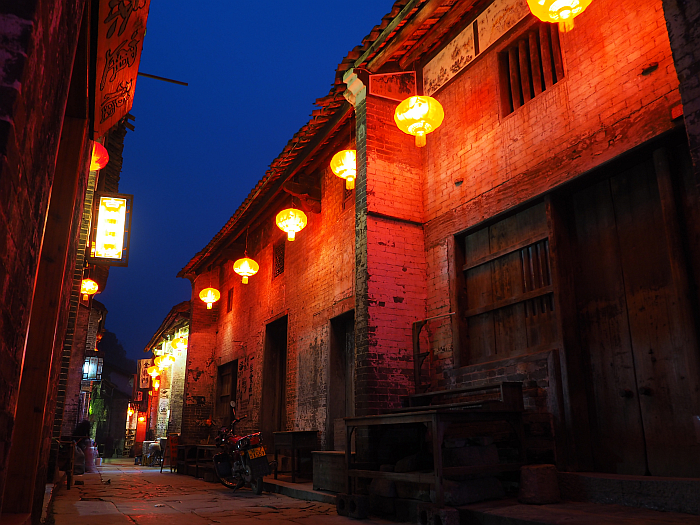
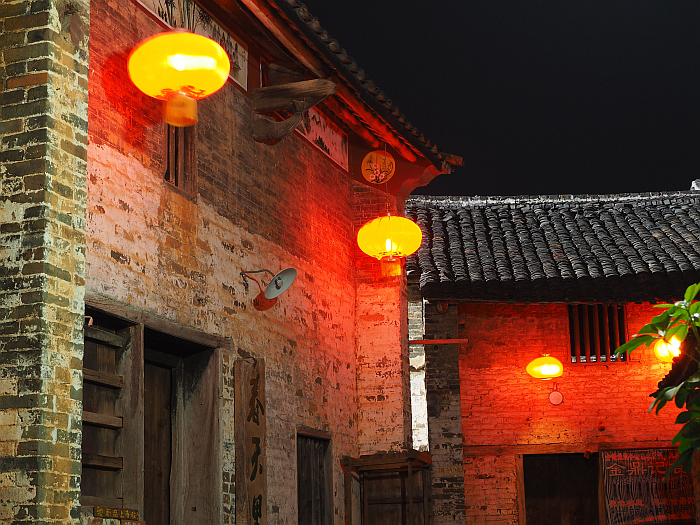
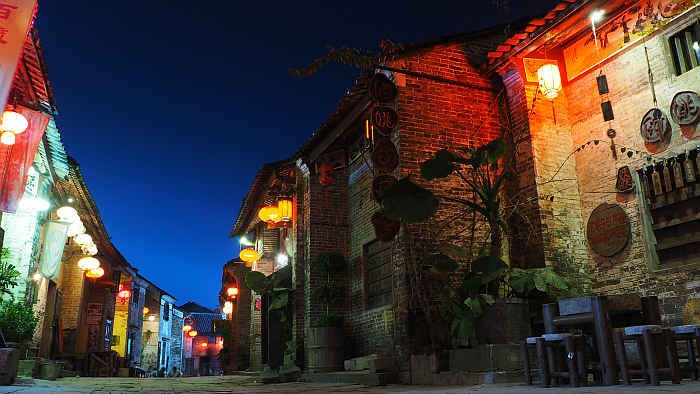
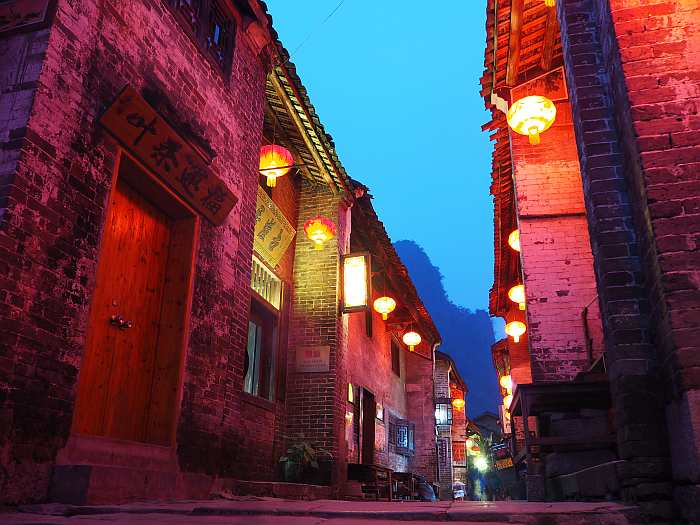
But I have to say that I’ve already been on the road for 8 days and 700 km to see something historically beautiful. Until now, there had been nothing to see but destroyed buildings or construction sites.
As it always is in China, I had to pay admission to enter the village. And not just a small amount.
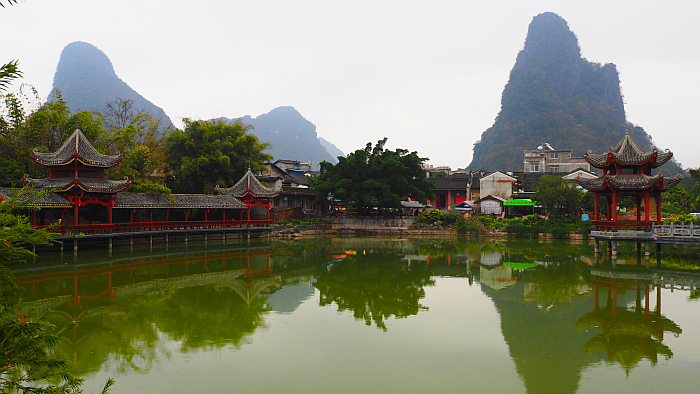
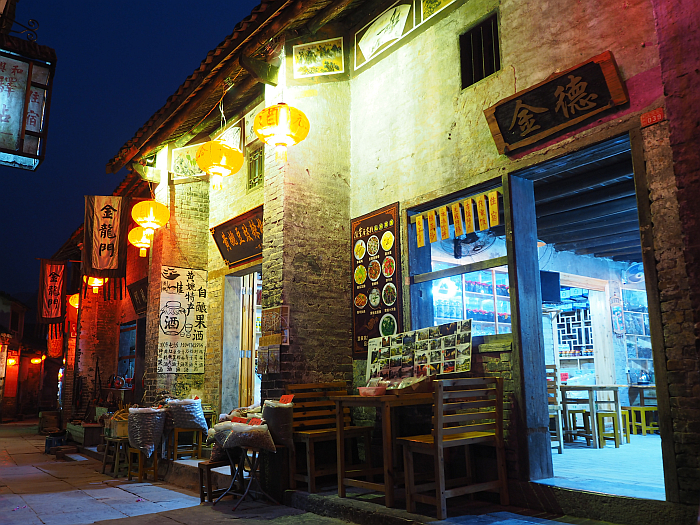
I treated myself to a “rain break day” before moving on. Unfortunately, the next morning was gray
in gray and still freezing cold.
There is no heating anywhere. Instead, the people sat around fires next to the road trying to keep warm. The shops were always wide open and the people sat shivering at the checkout. Even in the smaller restaurants, there was often no door. In principle, the people sell their goods from garages, and when they close, they simply pull down the garage door.
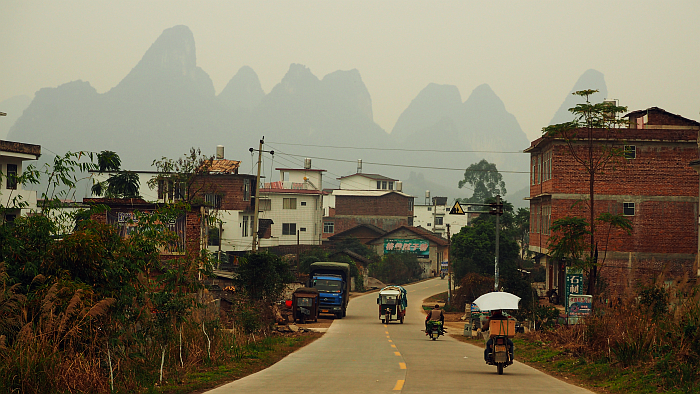
From there, it wasn’t far to Yangshuo – one of the most famous landmarks in China.
Already on the way from Huangyao towards Yangshou, the route was sweetened for me with beautiful karst mountains. Unfortunately, it was still cold; it was 3 degrees Celsius and raining, so it wasn’t really comfortable at all.
More soon…..
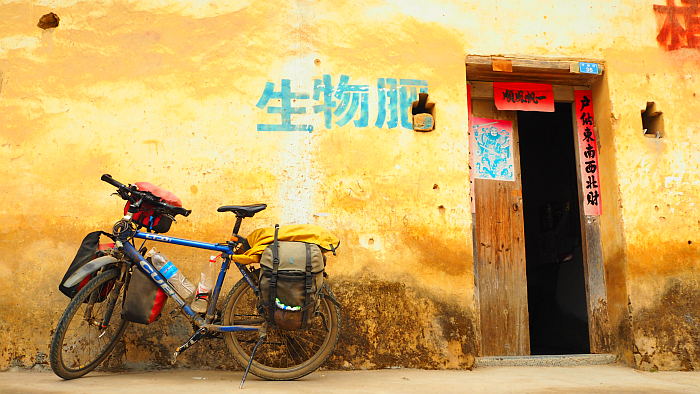
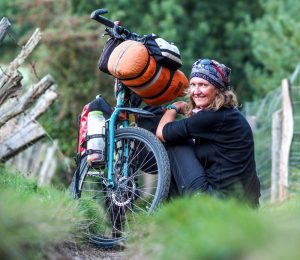


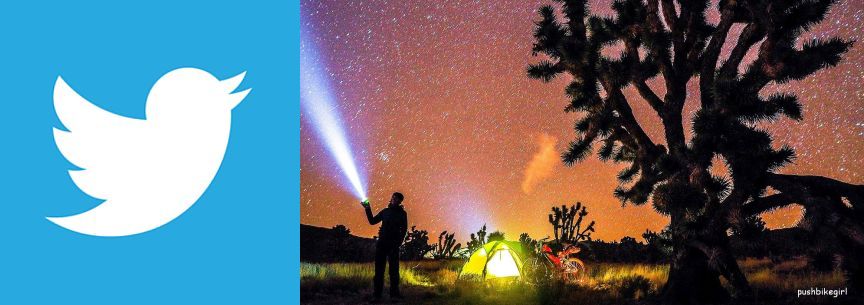

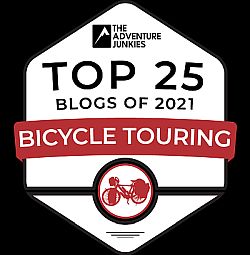
0 Comments